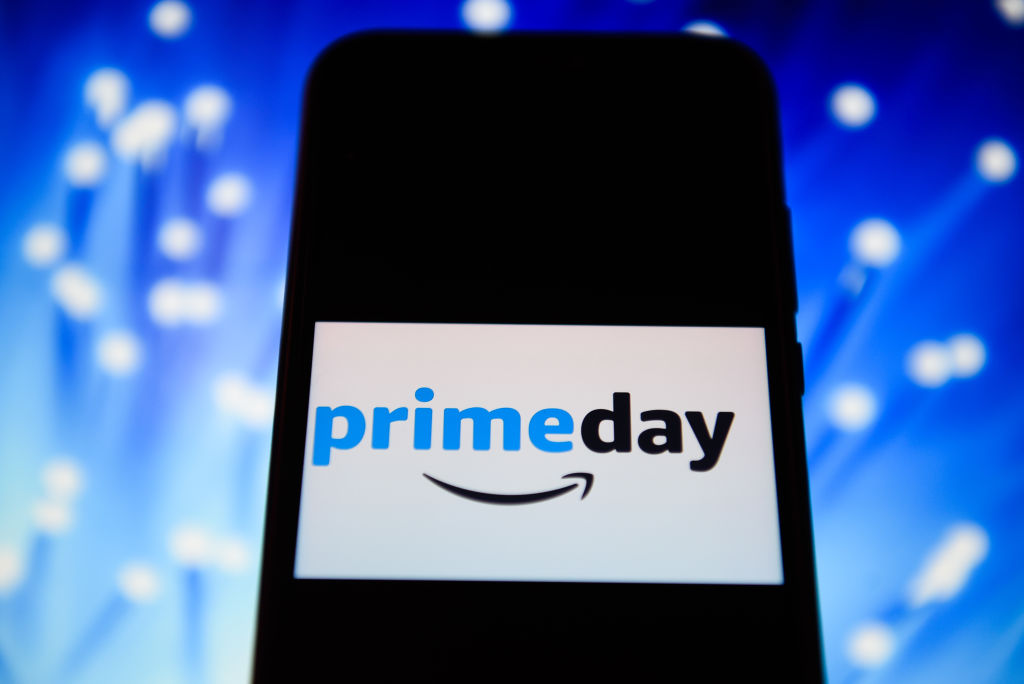Spending Like It’s 2019
Setting spending targets and using budgeting apps can help tame the urge to live it up (now that we can again).


Profit and prosper with the best of Kiplinger's advice on investing, taxes, retirement, personal finance and much more. Delivered daily. Enter your email in the box and click Sign Me Up.
You are now subscribed
Your newsletter sign-up was successful
Want to add more newsletters?

Delivered daily
Kiplinger Today
Profit and prosper with the best of Kiplinger's advice on investing, taxes, retirement, personal finance and much more delivered daily. Smart money moves start here.

Sent five days a week
Kiplinger A Step Ahead
Get practical help to make better financial decisions in your everyday life, from spending to savings on top deals.

Delivered daily
Kiplinger Closing Bell
Get today's biggest financial and investing headlines delivered to your inbox every day the U.S. stock market is open.

Sent twice a week
Kiplinger Adviser Intel
Financial pros across the country share best practices and fresh tactics to preserve and grow your wealth.

Delivered weekly
Kiplinger Tax Tips
Trim your federal and state tax bills with practical tax-planning and tax-cutting strategies.

Sent twice a week
Kiplinger Retirement Tips
Your twice-a-week guide to planning and enjoying a financially secure and richly rewarding retirement

Sent bimonthly.
Kiplinger Adviser Angle
Insights for advisers, wealth managers and other financial professionals.

Sent twice a week
Kiplinger Investing Weekly
Your twice-a-week roundup of promising stocks, funds, companies and industries you should consider, ones you should avoid, and why.

Sent weekly for six weeks
Kiplinger Invest for Retirement
Your step-by-step six-part series on how to invest for retirement, from devising a successful strategy to exactly which investments to choose.
For the introverted and the frugal, the pandemic has offered a welcome reprieve from the social pressures to go out and spend money. Although I am grateful for the vaccine, easing travel restrictions and the renewed freedom to safely gather with friends and family, I’ll admit that the return to social life at first was a bit of a shock, not in the least to my wallet.
During the pandemic, the savings rate soared. But after hitting a 45-year high in April 2020, the rate began to decline in 2021 and will likely settle near its historic average in 2022, says Elizabeth Renter, data analyst for NerdWallet.com, a consumer website.
If you find yourself ready to save a little less and spend a little more, consider what’s influencing your buying decisions.
From just $107.88 $24.99 for Kiplinger Personal Finance
Become a smarter, better informed investor. Subscribe from just $107.88 $24.99, plus get up to 4 Special Issues

Sign up for Kiplinger’s Free Newsletters
Profit and prosper with the best of expert advice on investing, taxes, retirement, personal finance and more - straight to your e-mail.
Profit and prosper with the best of expert advice - straight to your e-mail.
The power of social media. Nearly three-fourths of millennials say social media impacts their buying choices, according to a recent CreditCards.com survey. Generation Z is not far behind, with 66% admitting that their buying decisions are influenced by social media. “It’s a bit of the ‘keeping up with the Joneses’ mentality—we want to put our best foot forward to our friends and family,” says Ted Rossman, senior industry analyst for CreditCards.com. Ultimately, our social media feeds end up inundating us with highlight reels from the lives of our friends and family members, which can make it seem like everyone is on vacation all the time, eating well, dressing fashionably and spending liberally.
Social media may also contribute to our willingness to go into debt, Rossman says. As coronavirus pandemic restrictions ease, 44% of U.S. adults say they will take on debt to “treat themselves,” according to another recent CreditCards.com poll.
Even if you’re still working at home, it’s not too early to start thinking about how going back to the office will affect your budget. Otherwise, you could see a sharp increase in spending on your wardrobe, commuting and eating out. Make sure you’re taking full advantage of any benefits your company offers to help cover commuting costs, such as subsidies for public transportation, free or discounted parking, or benefits for employees who walk or bike to work.
There is more than one line of defense to resist the pressures to spend. I’ve found that setting spending targets and tracking my finances with budgeting apps are convenient ways to stay on top of my cash flow. Mint, which is free and available in most mobile-app stores, links with your credit and debit cards and categorizes your transactions while alerting you when you exceed your budget. Simplifi, available in most mobile-app stores for $3.99 a month ($2.99 a month with an annual subscription), will help you identify changes in spending and income and help you set financial goals.
While you can find a lot of conflicting advice about responsible spending, some evergreen budgeting rules still hold up. For example, “the 50-20-30 rule” suggests allocating 50% of your after-tax income to needs, 20% to wants and 30% to savings. This helps you view budgeting as an exercise in goal-setting that will help you afford to buy things you really want, such as a car or a new couch.
Bottom line: Be prepared. Take a look at your social calendar and save accordingly. Consider marking birthdays, weddings and other occasions that will cost you money so that when the date rolls around, you’ll be ready.
Profit and prosper with the best of Kiplinger's advice on investing, taxes, retirement, personal finance and much more. Delivered daily. Enter your email in the box and click Sign Me Up.

Emma Patch joined Kiplinger in 2020. She previously interned for Kiplinger's Retirement Report and before that, for a boutique investment firm in New York City. She served as editor-at-large and features editor for Middlebury College's student newspaper, The Campus. She specializes in travel, student debt and a number of other personal finance topics. Born in London, Emma grew up in Connecticut and now lives in Washington, D.C.
-
 Betting on Super Bowl 2026? New IRS Tax Changes Could Cost You
Betting on Super Bowl 2026? New IRS Tax Changes Could Cost YouTaxable Income When Super Bowl LX hype fades, some fans may be surprised to learn that sports betting tax rules have shifted.
-
 How Much It Costs to Host a Super Bowl Party in 2026
How Much It Costs to Host a Super Bowl Party in 2026Hosting a Super Bowl party in 2026 could cost you. Here's a breakdown of food, drink and entertainment costs — plus ways to save.
-
 3 Reasons to Use a 5-Year CD As You Approach Retirement
3 Reasons to Use a 5-Year CD As You Approach RetirementA five-year CD can help you reach other milestones as you approach retirement.
-
 21 Last-Minute Gifts for Grandparents Day 2025 to Give Right Now
21 Last-Minute Gifts for Grandparents Day 2025 to Give Right NowHoliday Tips Last-minute gifting is never easy. But here are some ideas to celebrate Grandparents Day.
-
 Texas Sales Tax-Free Weekend 2025
Texas Sales Tax-Free Weekend 2025Tax Holiday Here's what you needed to know about the Texas sales tax holiday.
-
 Alabama Tax-Free Weekend 2025
Alabama Tax-Free Weekend 2025Tax Holiday Here’s everything you need to know about the 2025 back-to-school Alabama sales tax holiday.
-
 The Sweet 23: States Where Twix and Kit Kat Avoid the ‘Candy Tax’
The Sweet 23: States Where Twix and Kit Kat Avoid the ‘Candy Tax’State Taxes There’s something spooky this Halloween, and it’s not just the ghouls. Find out if your state’s sales tax takes a bite out of sweet savings.
-
 Florida Back-to-School Tax-Free Holiday 2025
Florida Back-to-School Tax-Free Holiday 2025Sales Taxes The new tax-free holiday in Florida brought month-long savings on computers, clothing and other school supplies.
-
 Five Reasons You Shouldn't Shop Amazon's Prime Big Deal Days
Five Reasons You Shouldn't Shop Amazon's Prime Big Deal DaysSmart Buying Are Amazon Prime Big Deal Days still a good deal? We'll break it down.
-
 When Renting Is Smarter Than Buying
When Renting Is Smarter Than Buyingreal estate There are some situations when renting is smarter than buying. You're not necessarily throwing your money away when you rent.
-
 Best Cash Back Credit Cards
Best Cash Back Credit CardsCredit Cards If you're searching for a credit card that rewards you for everyday purchases, we've chosen the best.